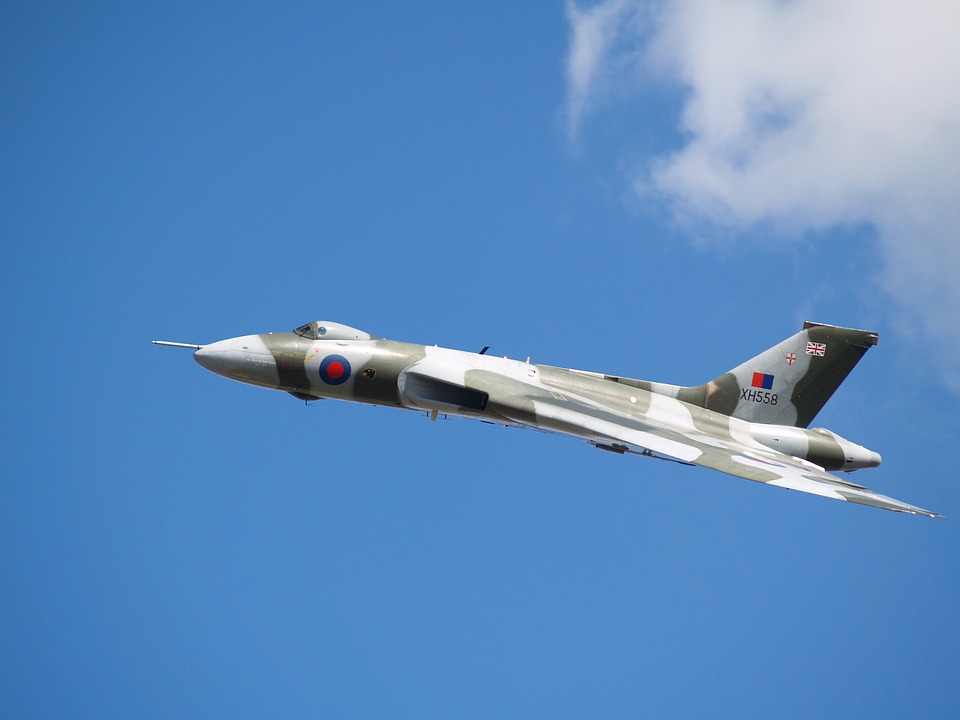Among the issues in the South China Sea surrounds China’s attempts to pressure Taiwan into being one with the mainland. As tensions remain between the two nations, Taiwan’s military has deployed its own warplanes to ward off Chinese jets that were making another incursion into their air space.
The island nation’s defense ministry claimed that Chinese military planes were making yet another incursion into its airspace. The Taiwanese military responded by dispatching its own fighter jets to ward off Chinese forces while monitoring them through their missile systems. The Taiwanese defense ministry reported that 10 J-16 and four Su-30 fighter planes and an anti-submarine aircraft from China made the incursion.
Four H-6 bombers that can carry nuclear weapons were also reportedly among the aircraft that made the incursion.
Taiwan has rejected China’s claim that the island nation is a breakaway province and Beijing’s seeking to reunify the two regions. Taiwan has had its own democratic government as well that has also resisted the pressure campaign by Beijing to accept its sovereignty over the island nation.
This follows ominous warnings last week from the defense ministry of the increasing threat that China is posing on Taiwan. The annual report from the ministry revealed that China is now able to neutralize Taiwanese defenses through soft and hard electronic assaults. The report went on to reveal that the situation was becoming more and more severe which was a change from the previous assessment that revealed that China lacks the capabilities to launch an attack on Taiwan.
The US has also openly supported Taiwan’s autonomy and democratic government, as well as opposing China’s sweeping sovereignty claim over the majority of the South China Sea. Back in July, US Defense Secretary Lloyd Austin reiterated the 2016 tribunal ruling that China’s claims over the disputed waters have no basis in international law.
“Beijing’s claim to the vast majority of the South China Sea has no basis in international law,” said Austin during his visit to Singapore.
“That assertion treads on the sovereignty of the states in the region,” added Austin, who noted that the US will support the countries who are defending their rights.



 U.S. Lawmakers Question Trump’s Iran Strategy After Joint U.S.-Israeli Strikes
U.S. Lawmakers Question Trump’s Iran Strategy After Joint U.S.-Israeli Strikes  Israel Launches Fresh Strikes on Iran After Death of Supreme Leader Ayatollah Khamenei
Israel Launches Fresh Strikes on Iran After Death of Supreme Leader Ayatollah Khamenei  Trump to Address Nation as U.S. Launches Strikes in Iran, Axios Reports
Trump to Address Nation as U.S. Launches Strikes in Iran, Axios Reports  Middle East Conflict Escalates After Khamenei’s Death as U.S., Israel and Iran Exchange Strikes
Middle East Conflict Escalates After Khamenei’s Death as U.S., Israel and Iran Exchange Strikes  Marco Rubio to Brief Congress After U.S.-Israeli Strikes on Iran
Marco Rubio to Brief Congress After U.S.-Israeli Strikes on Iran  UK Accepts U.S. Request to Use British Bases for Defensive Strikes on Iranian Missiles
UK Accepts U.S. Request to Use British Bases for Defensive Strikes on Iranian Missiles  Zelenskiy Urges Change in Iran After U.S. and Israeli Strikes, Cites Drone Support for Russia
Zelenskiy Urges Change in Iran After U.S. and Israeli Strikes, Cites Drone Support for Russia  Trump Warns Iran as Gulf Conflict Disrupts Oil Markets and Global Trade
Trump Warns Iran as Gulf Conflict Disrupts Oil Markets and Global Trade  Trump Announces U.S. Strikes on Iran Navy as Conflict Escalates
Trump Announces U.S. Strikes on Iran Navy as Conflict Escalates  Suspected Drone Strike Hits RAF Akrotiri Base in Cyprus, Causing Limited Damage
Suspected Drone Strike Hits RAF Akrotiri Base in Cyprus, Causing Limited Damage  Trump Says U.S. Combat Operations in Iran Will Continue Until Objectives Are Met
Trump Says U.S. Combat Operations in Iran Will Continue Until Objectives Are Met  Pentagon Leaders Monitor U.S. Iran Operation from Mar-a-Lago
Pentagon Leaders Monitor U.S. Iran Operation from Mar-a-Lago  Trump Says U.S. Attacks on Iran Will Continue, Warns of More American Casualties
Trump Says U.S. Attacks on Iran Will Continue, Warns of More American Casualties  Does international law still matter? The strike on the girls’ school in Iran shows why we need it
Does international law still matter? The strike on the girls’ school in Iran shows why we need it  Israel Declares State of Emergency as Iran Launches Missile Attacks
Israel Declares State of Emergency as Iran Launches Missile Attacks  Israel Strikes Hezbollah Targets in Lebanon After Missile and Drone Attacks
Israel Strikes Hezbollah Targets in Lebanon After Missile and Drone Attacks 































